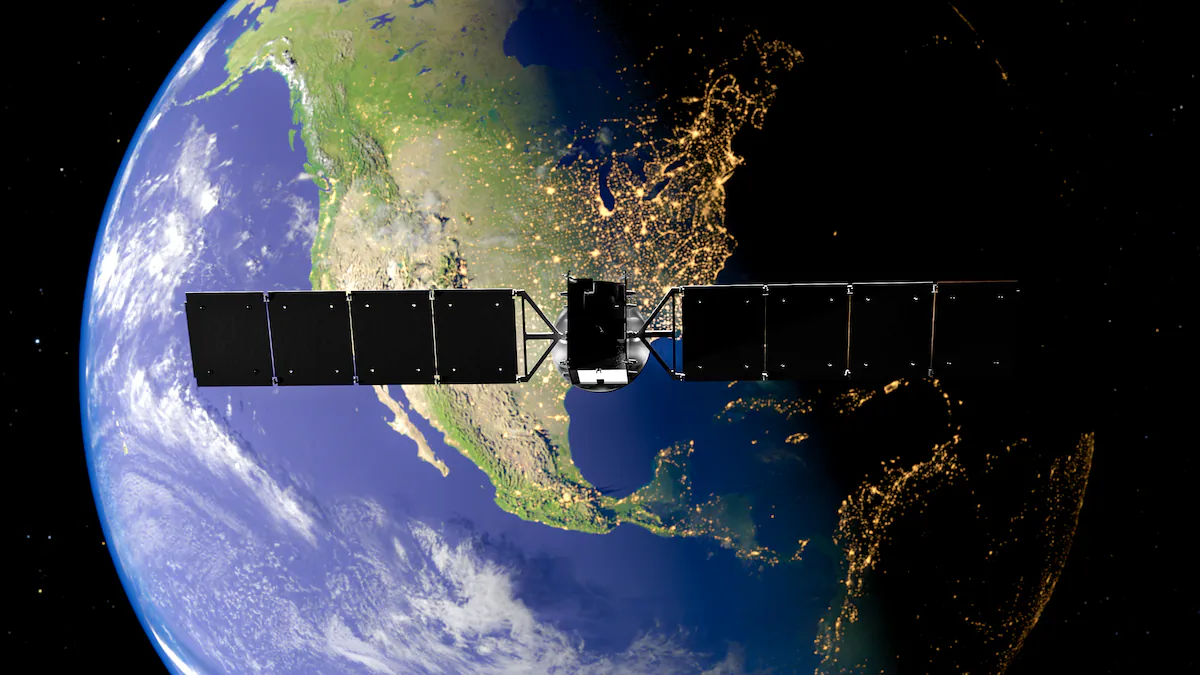
PARIS — Space has become a war-fighting domain, an assessment that calls for doctrinal changes and the ability to intervene there more quickly, space-force leaders from several NATO countries said at the Space Defense and Security Summit here on Tuesday.
“The rule-based international order in space is nearly over,” said Brig. Gen. Jürgen Schrödl, a division head with responsibility for space at the German Ministry of Defence’s strategy and operations department. “We have to accept that space is a tested domain, is a war-fighting domain, is becoming a war-fighting domain.”
The language is a step up from more diplomatic assessments at the summit last year, when military space leaders discussed growing threats to in-orbit assets, without going as far as describing space as a potential war zone or battlefield.
Global governments in the past two years spent more of their space budgets on defense than on civil space, according to data from summit organizer Novaspace.
Of the $73.1 billion in global government spending on space defense and security in 2024, more than a third was classified, the consultancy says.
“What you see is that it is now the military domain that is leading,” Hermann Ludwig Moeller, director of the European Space Policy Institute, told Defense News at the conference. “This is really clear compared to last year, the language and what is behind the language has shifted.”
More than 200 anti-satellite weapons now circle Earth in different orbits, said Brig. Gen. Christopher Horner, commander of 3 Canadian Space Division. While he didn’t provide details on their nature, he said that is a “shocking number of capabilities” to threaten allied space capabilities including satellite comms to Earth observation.
While hostile action in space is not new, “things are accelerating very fast,” said Maj. Gen. Vincent Chusseau, commander of French Space Command since August. “Space is a really full operational domain, we talk about war fighting in space.”
Chusseau said Russia has a full range of capabilities from satellites for rendezvous and proximity operations and orbiters that pack smaller satellites like a Russian doll, to anti-satellite missiles, electronic warfare, laser dazzling and cyber attacks.
Meanwhile, China is accelerating its space activities to achieve superiority there, according to Maj. Gen. Isaac Manuel Crespo Zaragoza, space commander for the Spanish Air and Space Force.
China was the second-biggest spender on space defense and security in 2024 with $9.3 billion, according to Novaspace data, compared with $53.1 billion spent by the United States. Russia spent $2.3 billion and France $2.1 billion, with Germany trailing in eight position with space defense and security spend of $655 million.
The big change is Germany “finally realized” that space is a war-fighting domain, said Maj. Gen. Michael Traut, commander of the German Space Command.
“Space becomes more and more tactical because technology is there, kill chains need to be faster,” the German commander said. “And if we talk about kill chains, we talk about seconds and minutes, not about creating an informational background for strategic decisions any more.”
Traut provided the example of integrated missile defense, which wouldn’t be as effective without pre-warning and cueing of systems from space.
The German military will design a military space-defense architecture by the end of this year that will be an enabler for multi-domain operations, said the German space commander. The first step will be a “multifunctional, multi-orbit constellation” to be completed in 2029, as well as the associated ground-based infrastructure.
There will be a need for a common space doctrine, for example how to protect allied assets or counter adversarial offensive action, according to Traut. That’s an operational implication that’s arisen in the past one to two years, he said.
“This is still an open issue for us, to develop a common space doctrine,” Traut said. “How do we operate? Who’s going to decide, in what case. and how do we manage our space battles.”
Horner said that while the narrative is changing in Canada, “we are not quite at a place where I can say publicly that space is a war-fighting domain,” joking that his policy officer in the audience was cringing “as I dance around that language.”
Nevertheless, changing language allows to open up the discussion of future defense strategies, including the need to take offensive and defensive action in space to protect critical infrastructure, Horner said. “None of those were conversations that were truly happening a year ago.”
“Beyond the big strategic programs and projects that are underway, how do we maintain a war-fighting edge or decisional advantage when the fight begins?” Horner asked. “And how do we replace capabilities quickly?”
Rather than “giant school bus-sized things” in geostationary orbit, the answers might be “tactically responsive capabilities that allow us to maintain a war fighting advantage,” Horner said. “How do we respond with some immediacy so that we can launch a tactical capability in 96 hours?”
Germany’s Schrödl said responsive launch and being able to “very quickly” bring new satellites into space when they are degraded also has a deterrence role.
He said that at a tactical level, Germany is seeing “a lot of incidents” happening with its satellites, and is observing intentional disturbance by Russia both from the ground and from space, including a lot of temporarily dazzling of observation and reconnaissance satellites.
NATO forces face an asymmetry in the cost of their space assets, with some offensive capabilities being “much cheaper,” said Lt. Gen. Bertrand Le Meur, head of the directorate for defense strategy, counter proliferation and strategic foresight at the French Armed Forces Ministry.
“My guess is that in the coming years we will see many nations being able to develop those capabilities because space is becoming available,” Le Meur said.
“Our space assets are kind of a honeypot, something very expensive, very exquisite,” Le Meur said. “So the figures globally are against us.”
In addition to functional space capabilities that have been used by armed forces for decades, such as Earth observation and communications, there is now a need for operational capabilities “in and for space,” to protect those functional capabilities, according to Germany’s Traut.
“And those operational capabilities consist of defensive and offensive means,” Traut said. “I can repeat that officially. Defensive and offensive means, shield and sword.”



